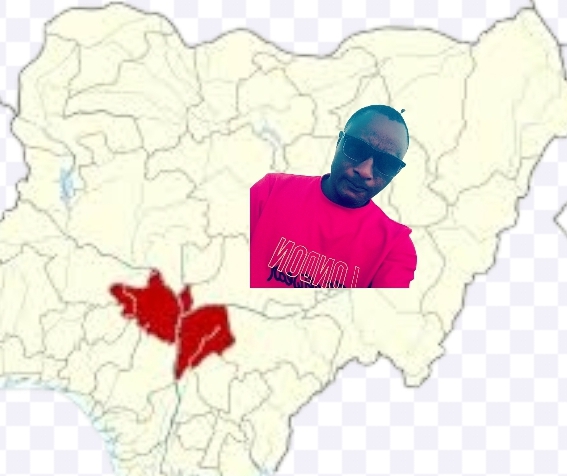Prior to the reclamation of Ajaokuta, Koton Karfe, and Lokoja by the Igala Kingdom, as pronounced by the Federal High Court sitting in Lokoja on June 2, 2020, several misleading write-ups have been circulating, lacking factual support.
One such write-up is by Omolori Sani from the Anebira-speaking extraction of Kogi State.
In response, we approached our reliable columnist, Sani Michael Omakoji less than 24 hours ago to analyze Omolori’s claims. In his piece titled “Opinion: Stories Without Substance Emerging as Igala Kingdom Reclaims Ajaokuta, Koton Karfe & Lokoja,” Sani Michael Omakoji presents the following insights:
Fake Stories Without Substance
Since the Federal High Court in Lokoja declared Ajaokuta, Koton Karfe, and Lokoja as part of the Igala Kingdom on June 2, 2020, numerous baseless narratives have surfaced on social media.
As a young man who passionately detests ethnic bigotry, I would have remained silent. However, posterity will not be kind to some of us if we fail to counter such misleading stories that could incite the public.
What prompted this write-up, among other things, is an article titled “Igala Annexation of Ajaokuta: A Utopian Deal” by Omolori Sani.
Before proceeding, it is crucial to emphasize that the issue in contention is the historical lease of Ajaokuta, Koton Karfe, and Lokoja to the Colonial Masters (Queen of England, Samuel Ajayi Crowther, William Balfour, and others) before Nigeria was amalgamated in 1914.
In fact, the deed of agreement (concession) between the Attah of Igala (Ameh Ocheje) and the Queen of England to release Ajaokuta, Koton Karfe, and Lokoja was signed on September 4, 1841.
Analyzing these facts, it is laughable for anyone to trace the history of Ajaokuta, Koton Karfe, and Lokoja to the era of the old Kabba Province or old Kwara State.
What does the history of the old Kabba Province or old Kwara State have to do with the leasing agreement between the Attah of Igala (Ameh Ocheje) and the British, dating back to 1841?
For clarity, the old Kabba Province and old Kwara State were created in 1926 and 1967, respectively.
Given these verifiable facts, how can someone who claims to be an erudite scholar mislead people with half-baked narratives of Ajaokuta from 1926 or 1967 when the Kabba Province and Kwara State were established?
To clarify the misleading information circulating, let us examine some parts of Omolori Sani’s article, extracted in eight paragraphs below:
Misrepresentation of Ajaokuta’s Origin
“If anything took the Ebiras by surprise, it is the claim of the Igalas that Ajaokuta belongs to them and its inclusion as part of the Okura State they are currently agitating for.”
“History has it that the first settlers saw a bird (Aja) perching (Oku) on their newly braided cottages (Uta) and therefore coined the word ‘Aja-oku-uta’ (Aja perched on a cottage) as the name of the land. These are all Ebira words.”
“It was not surprising that Ajaokuta, which is in the eastern part of Okene Local Government in the then Kwara State before attaining the status of a full local government, has been part and parcel of Ebiraland from time immemorial, and the two have moved together from the old Kabba Province to Kwara State and now to Kogi State.”
Even though you erroneously claimed that Igalas have no sense of history, let me emphasize that, as an Igala, I am well-equipped to educate you that the issue in contention dates back to 1841, not 1991.
Consequently, any reference to 1991 is inconsequential and irrelevant to the matter in court. As the Yoruba saying goes, “Cho Gbó Dadani?”
False Meaning of Ajaokuta
It is intriguing to see the Ebiras now attributing a new meaning to Ajaokuta, claiming it derives from “Aja (bird), Oku (perching), Uta (cottage).” However, what does this fabricated meaning have to do with the historical significance of Ajaokuta?
Do they derive their meanings from an isolated planet where words are given arbitrary definitions?
Without wasting time, I must categorically state that this newly fabricated meaning of “Ajaokuta” is unacceptable as it does not reflect the true essence of Ajaokuta, either historically or presently.
Ajaokuta derives its meaning from its physical characteristics, specifically “stones of all kinds.” Now, how did the name originate?
According to Igala historical texts, Ajaokuta was and remains a place where people gathered to exchange cowries (currency) for stones of various types.
Initially, Ajaokuta was called “Okuta” (stone). However, as the trade in stones gained momentum, the Attah (Ameh Ocheje) decreed that the area should be named “Aja” – “Okuta,” to which his subjects responded “Aché” (as you pronounced, Your Majesty).
Thus, the full meaning of “Ajaokuta” is a combination of two Igala words: “Aja” (market) and “Okuta” (stone), signifying “a marketplace where stones are traded.”
Annual Commemoration of Ajaokuta’s Heritage
As part of Igala’s annual cultural heritage, Igala elders, both within and outside Ajaokuta, gather annually to pay special homage to a unique stone in Ajaokuta, commemorating its historical significance. This practice has never been interrupted since 1841, making it an integral part of Igala tradition, akin to the Orugugu Festival, Italo Festival, Iseyi Festival, and the New Yam Festival in Enugu, among others.
Legal Considerations
In law, it is a common principle that “facts speak for themselves.” One cannot offer what they do not possess.
Due to the sensitivity of this matter, certain facts and figures are exclusively reserved for presentation before a court of competent jurisdiction to prevent “judicial rigging,” as witnessed in recent times.
For further clarity, I challenge my brother Omolori Sani to visit Ajaokuta again for fact-finding and report in his next write-up whether or not stones remain a defining feature of Ajaokuta.
Conclusion
The claims regarding the ownership of Lokoja and Koton Karfe by other tribes, apart from the Igala, have significantly diminished. Therefore, I will not hasten to delve into those aspects.
Instead of misleading the public with baseless write-ups capable of inciting unrest, it is better to uphold the truth. Perhaps, approaching the present Attah of Igala for a possible lease of the affected lands could be a viable solution for those currently occupying them.
As I conclude in my dialect: “Énédu kifôlamu kichuji Abéki Efibe Kpé Kiféré ñyómi yare Efólakidéyi, Ayégba Óma Idoko, Kpai Ocheje Ôma Ameh, Kpai Inikpi Óma Ufédó Ubaba Kuma Meju bida ofodu Ójó kañyó kifumamu chakaa! Mékaki ‘Aché’.”
Long Live Kogi StateLong Live Ané IgalaLong Live Mr. Writer.
Sani Michael Omakoji (Óma Igala Ôkpa Kpa dé)Content DeveloperCity Centre – Abuja, NigeriaEmail: Omakogibizventures@gmail.comTwitter: @Omakogi1
First published on www.ourworldgist.com on 5th June 2020

